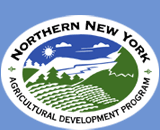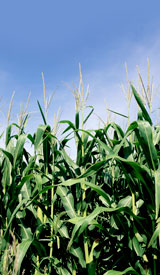November 3, 2009
Use before November 15, 2009
Cornell Cooperative Extension Contacts: Betsy Hodge, St. Lawrence
County, 315-379-0607; Ron Kuck, Jefferson County, 315-788-8450; Peter
Hagar, Clinton County, 518-561-7450
Cornell Specialists Set to Speak at NNY Sheep & Goat Week
Programs in Watertown, Plattsburgh and Canton
Northern NY Sheep and Goat Week presentations will offer a detailed look
at sheep and goat nutrition with Cornell University Professor Emeritus
and sheep specialist Dr. Douglas E. Hogue and Small Livestock Educator
Betsy Hodge of Cornell Cooperative Extension of St. Lawrence County.
Hodge says the goal of the workshop is to help current livestock
producers match the forages they grow with grains that contain some
fermentable fiber to meet the nutritional requirements of their animals.
An introduction to Cornell’s FeedForm Ration Balancing software program
is also part of the program.
The Northern NY Sheep and Goat Week programs are scheduled for:
• November 17, 6:30 pm, Watertown: Cornell Cooperative Extension
Jefferson County, register with Dairy and Livestock Educator Ron Kuck,
315-788-8450; bring dessert to share or $5.00/person
• November 18, 7:00 pm, Plattsburgh: Cornell Cooperative Extension
Clinton County, register with Peter Hagar at 518-561-7450; $5.00/person,
light refreshments will be provided
• November 19, 7:00 pm, Canton: Cornell Cooperative Extension St.
Lawrence County Learning Farm, register with Betsy Hodge at
315-379-0607, 379-9192;
$5.00/person, light refreshment will be provided.
Hogue will present “Fermentable Fiber: The Efficient Feeding of Small
Ruminants.” Hogue will talk about the Dugway Nutritional Plan.
“The Dugway Nutritional Plan was developed specifically for higher
producing ruminants to provide a simple, but effective method of feeding
these animals and to overcome some limitations of traditional systems.
Specifically, the Plan recognizes that diet formulation can have a
significant effect on feed intake and also that the proper balance of
dietary components can effectively prevent most metabolic disturbances
such as acidosis and animals going off-feed.”
The plan, first developed for lactating dairy cows, now provides
nutrient plans
for several types of animals with suggested levels of feed components
for various types of production.
Hodge will discuss feeding and ration terminology and introduce how
increasing fermentable fiber in a feed ration increases animal intake of
the feed.
“Basically, when a ruminant’s diet is too high in indigestible fiber,
the diet needs to be supplemented with grains to meet the energy needs
of the animal. When you do this, the rumen does not function as well and
you can have metabolic problems. By providing grains and good quality
forages with digestible, fermentable fiber you can provide all the
nutrients the animals need and keep them very healthy at the same time.”
Hodge will also lead workshop participants through the Cornell FeedForm
Ration Balancing software program that uses a Microsoft Access database
system to formulate livestock diet rations.
Hodge manages a flock of 80 sheep at the Cornell Cooperative Extension
of St. Lawrence County Learning Farm at Canton as well as her own flock
of 20 sheep and a herd of six goats. She provides Extension assistance
to livestock farmers throughout the North Country.
Learn more about raising goats, sheep, beef cattle and other livestock
by contacting your local Cornell Cooperative Extension office or at the
Northern New York Agricultural Development Program website at
www.nnyagdev.org. #



